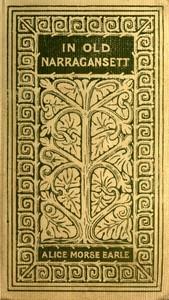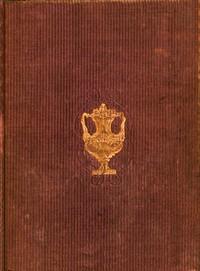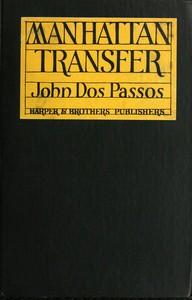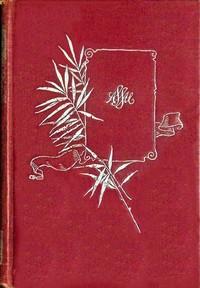|
|
Read this ebook for free! No credit card needed, absolutely nothing to pay.Words: 37806 in 9 pages
This is an ebook sharing website. You can read the uploaded ebooks for free here. No credit cards needed, nothing to pay. If you want to own a digital copy of the ebook, or want to read offline with your favorite ebook-reader, then you can choose to buy and download the ebook.

: In old Narragansett; romances and realities by Earle Alice Morse - Short stories American; Narragansett Bay Region (R.I.) History Fiction@FreeBooksMon 08 Apr, 2024 A NARRAGANSETT ELOPEMENT Four miles north of Narragansett Pier lies the old South Ferry, from whence for over a century ran ferry-boats to a landing on Conanicut Island. About a mile farther north there stands on Boston Neck an ancient willow-shaded, gambrel-roofed, weather-beaten house which in the latter part of the eighteenth century was the scene of a sadly romantic event. It was built by Rowland Robinson in the first half of the century--in 1746--and was originally one hundred and ten feet long, as the stone foundations still show. The kitchen and negro quarters have been demolished, and the present structure has a front of sixty feet. The rooms within are models of the simple style of architecture of that day. The staircase is specially beautiful with its gracefully turned balusters and curious drop ornaments, and its deep-worn steps of bass-wood. The walls of all the rooms are wainscoted in a substantial manner, and the fireplaces are ornamented with blue and white Dutch tiles. The heavy timbers and rafters--all cut on the place--have not sagged an inch with the weight of years. Over the fireplace in the dining-room is a panel bearing a smoke-darkened painting which represents a deer-hunt that occurred on the Robinson place while the house was being built. The riders in this picture appear to be standing in their stirrups instead of sitting on their saddles. The great attic in which the slaves are said to have slept contains now a picturesque litter of old sea-chests, spinning-wheels, clock-reels, wool-cards, flax-brakes, yarn-winders, saddles, and pillions; and in the beams of the roof are great iron hooks to which--it is whispered--the slaves of olden times were tied when they received their floggings. They are with much more probability the loom-hooks which were used by weavers when weaving cloth on an old hand-loom. The handsome great west room is known as the Lafayette Chamber, it having been occupied for some weeks by the Marquis de Lafayette during the Revolutionary War; and on panes of glass, still whole after a century's use, are the names of French officers, scratched on with the writers' diamond rings. The house abounds in cupboards--tall, narrow cupboards high up over the chimney, low, broad cupboards under the window-seats, medicine cupboards and pot cupboards, triangular corner cupboards, and, in the parlor, one beautifully proportioned apse-shaped china-cupboard which is ornamented with carved "sunbursts" and scalloped and serrated shelves, and is closed with glass doors to show the treasures and beauties within. But in "Unfortunate Hannah's" chamber is the most famous cupboard of all, for in that narrow and shallow retreat a beautiful daughter of Rowland Robinson hid her lover when she heard the approaching footsteps of her irascible father on the staircase leading to her room. Rowland Robinson was a typical Narragansett planter--wealthy, proud, and imperious. Tall and portly, ruddy of face, he showed in his dress and carriage his great wealth and high position. A coat of fine dark cloth or velvet with silver buttons was worn over a long yellow waistcoat with great pockets and flaps; violet or brown velvet knee-breeches with handsome top-boots, or silk stockings with buckled shoes; lace-frilled shirts; a great beaver cocked hat looped up with cords over his powdered hair--this attire gave him a comely and elegant presence. His character may be given in a few words by quoting the wife of Hon. William Hunter, minister to Brazil. She wrote in her diary sixty years ago her personal recollection of him. "He was of violent passions, which was characteristic of the Robinsons, but of benevolent, noble nature." Many stories are told of his impetuous generosity and kindly impulsiveness, none being more characteristic than his action when his first cargo of slaves came from the Guinea coast. Slave-dealing was such a universal practice at that date among wealthy residents of Narragansett and Newport that it was a commonplace business enterprise for Rowland Robinson, when he was building his new house, to send a ship to Africa for a cargo of negroes, intending to keep the most promising ones for his own household and farm servants, and to sell the remainder. But when the ship landed at South Ferry, and the forlorn, wretched, feeble men and women disembarked, he burst into tears and vowed that not one should be sold. He kept them all in his own household, where they were always kindly treated. He never again sent a vessel to Africa to engage in the slave-trade, though one negro of royal birth--Queen Abigail--was so happy in her Narragansett home, that with Rowland Robinson's consent and his liberal assistance she returned to her home in Africa, found her son--the negro prince--and brought him to America, where he became Mr. Robinson's faithful body-servant. The wealthy planter had other sources of income than slave-trading. He owned great ships that engaged in general commerce. He had an immense dairy and made fine Rhode Island cheese from the milk of his beautiful "blanket-cows." It was his ambition to have one hundred of these lovely black-and-white animals, but it is a matter of tradition that, while he could keep ninety-nine readily enough, when he bought or raised the hundredth cow, one of the ninety-nine sickened and died, or was lost through accident, and thus the number still fell short. Great quantities of grain and hay did he also raise on his fertile farm; and besides the grain and cheese that he shipped to the West Indies he also sold to the wealthy colonists many Narragansett pacers--swift horses of the first distinctively American breed. These pacers all came from one sire, "Old Snip," who it is said was of Andalusian birth and was found swimming in the ocean off the coast of Africa, was hauled on board a trading-ship and was carried to Narragansett, where he was allowed to run wild on the Point Judith tract. These sure-footed pacers had a peculiar gait; they did not sway their rider from side to side, nor jolt him up and down, but permitted him to sit quietly, and thus endure without fatigue a long journey. In those carriageless days, when nearly all travel was by saddle and pillion, the broad-backed, easy-going Narragansett pacers were in such demand that they brought high prices and proved a good source of income. Three children were born to the builder of this beautiful colonial home: William Robinson, who died in Newport in 1804, in a house on the corner of Broadway and Mann Avenue, and two daughters, Mary and Hannah. Gay festivities had these young people in the hospitable great house, especially when a demure young Quaker cousin was sent to them to live for awhile in order to break up a romantic love-affair of hers with a young French officer. Count Rochambeau was a guest at her father's house, and too many opportunities for love-making were found when the young Frenchman came to report to his commanding officer. Gayest and loveliest of all the beauties throughout Narragansett was fair Hannah Robinson--Unfortunate Hannah. Much testimony of her extraordinary beauty has descended to us, one story being of her meeting with Crazy Harry Babcock, that reckless dare-devil of a soldier whose feats of valor by land and sea were known all over Europe as well as in America. This extraordinary man, during a visit to England, was invited to the palace and introduced to the royal family. When the queen extended her hand to him to be kissed, he sprang briskly from his knees, exclaiming: "May it please your majesty, in my country, when we salute a beautiful woman we kiss her lips, not her hand," and with the words he seized the astonished queen by the shoulders and impressed on her lips a rousing smack. Upon his return to America he went to Narragansett for the avowed purpose of "seeing the prettiest woman in Rhode Island." As he entered the parlor of Rowland Robinson's house fair Hannah rose to meet him, and the crazy colonel, as she extended her hand to greet him, dropped on his knee with a look of intense admiration, saying, in the stilted words of the times: "Pray permit one who has kissed unrebuked the lips of the proudest queen on earth to press for a moment the hand of an angel from heaven!" The great wealth and luxurious manner of living of the opulent Narragansett planters was shown in no way more plainly than in the manner in which they educated their children. They spared no pains nor expense to obtain the best masters and teachers. Rowland Robinson sent his daughter to Newport to receive instruction from Madame Osborne, whose fame as a teacher was known throughout America, and whose "Memoirs" form the dullest book in the English language. At this school Hannah met the handsome lover who was to have such an influence over her life. Pierre Simond, or Peter Simons as was most unromantically Anglicized his name, was a scion of a French Huguenot family, who taught music and French in Madame Osborne's school. From the moment the young couple met they were lovers. Both knew, however, how hopeless it was to think of obtaining Mr. Robinson's consent to a marriage which would appear to him so unequal; they therefore kept their love a secret. As the time approached for Hannah's return to her home in Narragansett, the lovers were in despair at the thought of separation, for they knew their unhappiness could not be mitigated even by the exchange of love-letters. At this juncture the young music-teacher managed to obtain a position as private tutor in the family of Colonel Gardiner, who lived only two miles from Hannah's home and who was her uncle. It can easily be divined that when once in Narragansett the happy lovers found many opportunities of meeting, which were frequently brought about by the romantic and easy-going colonel, and were not hindered by Hannah's mother when she discovered her daughter's love-affair. Though Mrs. Robinson would not give her approval she tacitly gave her aid by helping to conceal the lovers' meetings from Rowland Robinson; and it was with her knowledge that the lover came to Hannah's chamber, where he often had to be concealed in the friendly cupboard. When Peter Simons could not enter the Robinson house he stood by his true-love's window under a great lilac-bush, which is still growing, sturdy and unbroken under the weight of a century of years. In the concealing shadow of the lilac-bush words of love might be whispered to the fair girl who leaned from the window, or letters might be exchanged with comparative safety. But true love ran no smoother in the eighteenth century than in the nineteenth, and when one night a fair hand dropped a tender billet into the gloom of the lilac-bush, old Rowland Robinson chanced to open the door of his house and he saw the white messenger descend. Speechless with suspicion and rage he rushed to the lilac-bush and thrust his buckthorn stick into it with vigorous blows until a man ran out into the darkness, whom the irate father in the second's glimpse recognized as the "wretched French dancing-master" who taught his nephews. Free books android app tbrJar TBR JAR Read Free books online gutenberg More posts by @FreeBooks
: Robert Merry's Museum Volumes I and II (1841) by Various Goodrich Samuel G Samuel Griswold Editor - Children's literature Periodicals@FreeBooksMon 08 Apr, 2024

: Manhattan Transfer by Dos Passos John - New York (N.Y.) Fiction; Psychological fiction; Social problems Fiction; Immigrants Fiction; Rich people Fiction; Manhattan (New York N.Y.) Fiction@FreeBooksMon 08 Apr, 2024
|
Terms of Use Stock Market News! © gutenberg.org.in2025 All Rights reserved.






